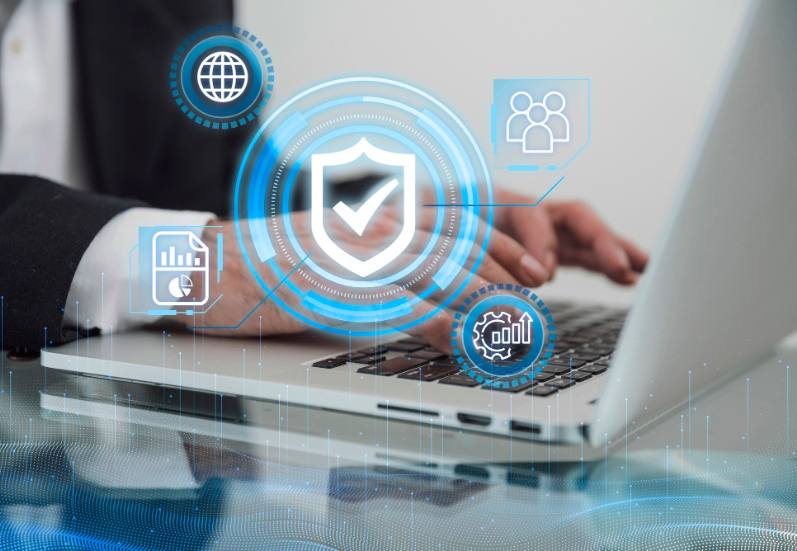
With the world going digital, lawyers are dealing with large quantities of sensitive data such as client communications, legal documents, and confidential case details.
As cyber threats increase, law firms and solo practitioners have started to take extra safety measures regarding their data. And this is why VPNs for lawyers have come out as an essential tool.
These are tools that will help you protect online privacy and have secure communication. And guess what? Some of them are completely free to use. This makes it more accessible to lawyers.
But is that all? Or are there other things that you need to know about? If this is something that you want to know about, then you have reached the right place.
So, keep on reading this blog till the end, and thank me later…
VPNs for Lawyers: Everything You Should Know About!

While this might sound like a very new thing in the business, there are Virtual Private Networks in the legal industry as well. These VPNs for lawyers encrypt internet traffic.
Furthermore, they help legal professionals by shielding sensitive legal information from hackers, surveillance, and cybercriminals.
Whether you use remote working, access case files while you are out, or chat with clients, a VPN helps protect your online activities.
But do lawyers really need a VPN? Yes, they do. And let me tell you why.
We all know that lawyers are bound by attorney-client privilege and keep client information secret at all costs. And this is something that VPS for lawyers can help with.
A free VPN ensures that online communications, emails, and legal research are encrypted and unreachable by third-party prying eyes.
Law firms also have cyber-attack vulnerabilities that can tarnish your law practice, so it becomes imperative to use a VPN without fail for your law practice. It is also essential for growing your law firm.
Here are the reasons why VPNs for lawyers have become a MUST:
Secure Remote Work:
Numerous lawyers work remotely or consult case files over public Wi-Fi networks in coffee shops, courthouses, or hotels.
Public Wi-Fi is especially vulnerable, as users can be snared with ease by hackers looking to intercept sensitive information.
A VPN forms an encrypted tunnel from the lawyer’s device to the internet that protects sensitive information from cyber threats.
Defaulting Geo-Restrictions and Censorship:
Lawyers (due to their nature) may need to access some research on websites or databases that are geographically restricted.
In a case like that, a VPN can mask the IP addresses of lawyers so they can access legal resources that are otherwise restricted by location.
This is especially important for attorneys who deal with international cases or serve in countries with heavy internet censorship.
Compliance With Regulations:
Finally, having a VPN means you are compliant with any form of regulation that might be specific to the state in which you are practicing or residing.
Depending on the jurisdiction of the area, you will be able to take extra care when it comes to protecting the client’s data if you have a VPN.
Essential Features of Free VPNs for Lawyers
Different free VPN services vary greatly in the security and reliability they provide. In selecting a VPN, lawyers should look for features such as:
- Strong Encryption – A good VPN should use encryption for your data transmissions.
- No-Log Policy – Guarantee that the VPN provider does not store user activity logs and protects clients’ anonymity.
- Speedy Connection – If internet speeds are slack, productivity can wane, so opt for a VPN with dependable performance.
- Multiple Server Locations – provides flexibility and no restrictions for global access to legal resources.
Dangers of Not Using a VPN in Legal Practice
Not using a VPA can put lawyers and their clients at serious risk, such as:
- Data Theft: Cybercriminals often target law firms for the sensitive data they manage. In general, a security breach can result in financial loss, damage to reputation, and legal action. With law firms taking a more digital approach, this is more important now than ever.
- Man-in-the-Middle Attacks: When encrypted, hackers could control emails, messages, and sensitive information about cases.
- Surveillance: Client privacy can be compromised by governments and ISPs monitoring online activities.
For lawyers working with more sensitive cases, digital security is a must-have. A free VPN is a simple yet powerful way to protect interactions over the internet.
VPNs for Lawyers: Setting Up a VPN for Legal Professionals
Configuring a virtual private network is simple and needs little technical expertise:
- Select a Reliable Free VPN Provider – Please go for a Virtual Private Network service with a good reputation for privacy and security purposes.
- Download and install the VPN software — Most VPN providers have Windows, MacOS, iOS, and Android apps.
- Using a VPN — To use a VPN, you need to:
- Step 1: Choose a server location
- Step 2: Choose a secure server location.
- Using VPN Protection — Log in to the VPN before accessing emails, legal databases, or client communications.
For maximum security, lawyers should also use additional cybersecurity tools, like an encrypted email service and multi-factor authentication.
Legal and Ethical Implications of Using VPNs for Lawyers
VPNs are perfectly legal to use in most nations, yet attorneys need to ensure that the VPNs’ use is within both country-specific and professional ethical guidelines. VPN use may be limited in some jurisdictions, so attorneys should confirm this is permissible.
Furthermore, free VPNs allow limited protection compared to paid VPN services that offer powerful functionalities ranging from dedicated IP addresses to high-end encryption protocols. Law firms can opt for a premium VPN solution for those needing heightened security.
Confidentiality is of paramount importance in the legal profession. As cyber threats multiply and more lawyers work remotely, a free VPN becomes essential to securing your data, especially client data, and your communications.
A VPN encrypts online activity, allowing attorneys to work safely, access restricted resources, and maintain client privilege while protecting them from the threat of cyberattacks.
At the end of the day, for a law firm or even a solo practitioner, incorporating a VPN in their day-to-day operations is a small but powerful step to help maintain professional integrity and digital security.
Read Also:
- Signs of Nursing Home Abuse and How Lawyers Can Help
- Why Most PI Lawyers Work on Contingency Fee Arrangements
- The Role of a Naturalization Lawyer in Simplifying the Citizenship Process











0 Reply
No comments yet.